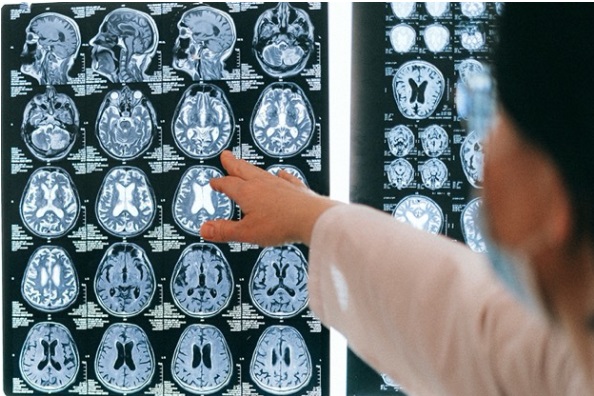Binge Eating & Purging Study
Dr. Laura Berner and her colleagues at the Icahn School of Medicine at Mount Sinai are conducting a study that examines whether differences in behavior and gut hormone levels after fasting and eating a meal could help explain symptoms of bulimia nervosa.

Fast Facts
females 18-35 years old
binge eat & purge
right handed
Compensation Provided
Tri-state
area
Study Description
This study involves a brief phone screen, clinical interviews, cognitive tasks, questionnaires, a taste test, and blood draws. In total, the study involves two in-person visits that take place at the Icahn School of Medicine at Mount Sinai.
After phone screening, you will be asked to complete 2.5 hours of clinical interviews in person at the EWDP clinic or via a HIPAA-compliant videoconference (Zoom). If desired, you will also receive referrals for treatment. You will be asked to complete remaining screening measures and assessments in person at the Mount Sinai Center of Excellence in Eating and Weight Disorders clinic, which will take approximately 1 hour to complete. Your height, weight, blood pressure, and pulse will be measured, and if you are participating in our group with bulimia nervosa, you will undergo a blood draw to make sure that you are medically stable. You will also complete cognitive tasks and a questionnaire.
If you have already completed phone screening, interviews, and in-person screening visit procedures as part of our other study focused on self-control and bulimia nervosa using a technology called functional magnetic resonance imaging (fMRI; “The Influences of Eating and Fasting on Inhibitory Control in Bulimia Nervosa: A Computational Neuroimaging Study”), and there are facilities-based delays in scheduling the main study visit, you will be asked to complete updated pre-study-visit assessments and will receive compensation for completing these assessments. Otherwise, your participation in this gut hormone study would only include the last step, the main study visit.
The main study visit lasts about 4 hours, at the Clinical Research Unit (CRU) at Mount Sinai. This visit involves cognitive tasks, questionnaires, a taste test, and a series of blood draws. At the start of the study visit, a certified nurse at the CRU will insert an IV in one of your arms. The nurse will use this IV to perform a blood draw every 30 minutes for a total of 8 times throughout the study visit. A member of our study staff will monitor these procedures throughout the study visit. You will also be able to tell the experimenter if you feel uncomfortable and wish to stop the visit at any time.
Since what we eat can influence hormone levels that our body produces as well as our brain function, before this study visit, you will be asked to not eat anything or drink anything but water for 16 hours before the study visit. An hour after your arrival at the study visit, you will be asked to consume a standardized meal within 15 minutes.

Study Background
This study involves a brief phone screen, clinical interviews, cognitive tasks, questionnaires, a taste test, and blood draws. In total, the study involves two in-person visits that take place at the Icahn School of Medicine at Mount Sinai.
After phone screening, you will be asked to complete 2.5 hours of clinical interviews in person at the EWDP clinic or via a HIPAA-compliant videoconference (Zoom). If desired, you will also receive referrals for treatment. You will be asked to complete remaining screening measures and assessments in person at the Mount Sinai Center of Excellence in Eating and Weight Disorders clinic, which will take approximately 1 hour to complete. Your height, weight, blood pressure, and pulse will be measured, and if you are participating in our group with bulimia nervosa, you will undergo a blood draw to make sure that you are medically stable. You will also complete cognitive tasks and a questionnaire.
If you have already completed phone screening, interviews, and in-person screening visit procedures as part of our other study focused on self-control and bulimia nervosa using a technology called functional magnetic resonance imaging (fMRI; “The Influences of Eating and Fasting on Inhibitory Control in Bulimia Nervosa: A Computational Neuroimaging Study”), and there are facilities-based delays in scheduling the main study visit, you will be asked to complete updated pre-study-visit assessments and will receive compensation for completing these assessments. Otherwise, your participation in this gut hormone study would only include the last step, the main study visit.
The main study visit lasts about 4 hours, at the Clinical Research Unit (CRU) at Mount Sinai. This visit involves cognitive tasks, questionnaires, a taste test, and a series of blood draws. At the start of the study visit, a certified nurse at the CRU will insert an IV in one of your arms. The nurse will use this IV to perform a blood draw every 30 minutes for a total of 8 times throughout the study visit. A member of our study staff will monitor these procedures throughout the study visit. You will also be able to tell the experimenter if you feel uncomfortable and wish to stop the visit at any time.
Since what we eat can influence hormone levels that our body produces as well as our brain function, before this study visit, you will be asked to not eat anything or drink anything but water for 16 hours before the study visit. An hour after your arrival at the study visit, you will be asked to consume a standardized meal within 15 minutes.
Additional Information

If you binge eat and purge, are female, right-handed, aged 18-35, and are able to attend two study visits in Manhattan, you may be eligible to participate.
Participation includes a brief phone screen, clinical interviews, questionnaires, and a study visit after a 16-hour fast that involves blood draws, cognitive tasks, a standardized meal, and a taste test.



